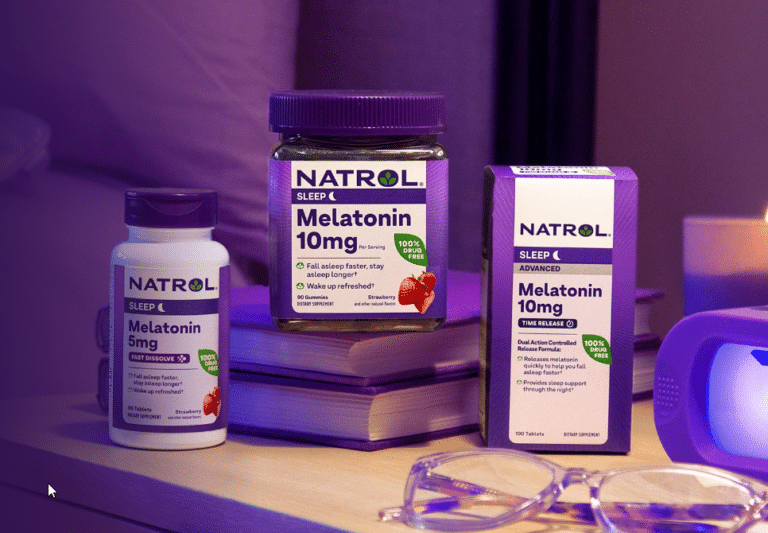
Kodiak Cakes Selects BluePlanner TPM
Kodiak Cakes, maker of whole grain and protein-packed breakfasts and snacks, has select...

The level of cultural and economic diversity across major markets in what many multinationals call the “APAC” or Asia Pacific region is extremely high. Consider some of the key APAC markets such as South-East Asia, Australia and New Zealand, China, Japan, and Korea, across relevant dimensions for Trade Promotion Management (TPM):

The APAC markets mentioned above differ widely on these dimensions as well as others. Given the diversity and complexity inherent across APAC, how are leading food and beverage brands Winning with TPM? (We define “Winning” as achieving or exceeding target return on investment for the company while providing requisite transparency and control.)
The key is to not oversimplify the complexity in APAC with a once-size-fits-all TPM approach, nor should brands throw up their hands and let each market team operate however it sees fit. It’s critical to understand your key markets across several important dimensions that will drive TPM success, include enough flexibility in your approach to address the diversity you will invariably face, and standardize the rest as much as humanly possible in what you may think of as a hybrid strategy.
Let us look at how a balanced, hybrid strategy comprised of both sufficient flexibility to address local market conditions and standardization to drive transparency, compliance, and intelligence plays out across South-East Asian markets, with specific country examples with blended Traditional Trade – Modern Trade archetypes.
The degree of retailer consolidation in any market has a direct impact on how TPM solutions should be deployed in that market. In the US, where the top 10 retailers account for 60% of in-store food and beverage sales, brands will a priori require deep Key Account planning and execution capabilities for TPM to develop and execute winning promotional strategies. This is especially true when planning is done at a relatively “high” or headquarters level.

Indonesia is good example, where centralized key account planning is a required capability, while brand sales teams operate across fragmented territories and distribution channels, and are often expected to plan at the local or store level for hundreds, and even thousands of stores.
To effectively handle the breadth of the above market requirements requires a high degree of inbuilt flexibility within a TPM solution, beginning with how master data can be structured in a single domain to support both deep planning and execution for a relatively small number of key accounts, as well as effective promotion planning for an exceptionally large number of stores across sales territories.

While an increasing percentage of instore food and beverage sales in many Western markets including the US and Europe have evolved to direct-to-retailer and direct-to-store models, traditional distributor-led trade is still the dominant model across most South-East Asian markets, and has corresponding implications for TPM.
Provincial distributors with localized coverage zones in Indonesia, for example, are often unwilling or incapable of strategically planning and executing trade promotions on a national level, but at the same time expect to receive promotion funds from the brand manufacturer for distribution and other services rendered. In such a scenario, brands plan promotions in collaboration with the retail key account, and execute plans via assigned distributors.
Flexibly integrating and cascading available data streams at scale across the end-to-end TPM process from promotion planning through to invoice matching and payments, supports overall process efficiency and accuracy when accounting and processing invoices from direct customers and intermediary parties.
Retailer POS and syndicated scanner data have been widely available to brands in the US and other Western markets for decades. While never perfect or complete, such data has played a significant role in brands understanding not only retail sales dynamics but also consumer price and promotion elasticities, and when combined with marketing data can drive intelligent pricing and promotion strategies that benefit consumer, retailer, and brand manufacturer. Such is not the case in most APAC markets. Retailers and distributors’ sharing or selling their sales data is uncommon, and established data syndicators have much smaller footprints across APAC markets.

Brands seeking to improve the ROI of their trade promotions must be prepared to look at other data sources for insights. For example, their own Sell-In data (such as sales data to distributor warehouses) and Sell-Out data (warehouse depletions), while often incomplete and asynchronous, should be leveraged within TPM solutions to increase the brand’s understanding of promotion effectiveness. Consumer goods manufacturers must be prepared to be practical and maximize the value of available data they have when seeking to drive sales productivity in APAC markets.
Furthermore, TPM in APAC must support a brand’s requirements for global standardization and transparency. For example, leading brands are increasingly seeking a single, global rollup of TPM across all markets, and any APAC-focused TPM system must support such requirements while flexibly addressing the unique market requirements mentioned above.
As you assess your TPM current state in APAC along the above dimensions, we encourage you to expect and plan for diversity and complexity, while being receptive to opportunities to drive standardization where possible.
Consider in your TPM solution the following winning strategies:
It would be remiss not to mention the impact that Covid-19 has had on all the above. We have found that in APAC region, governments have strictly managed cases to an absolute minimum in many countries. Leading brands have therefore been particularly concerned about negative public relations consequences of cases reported at their local headquarters or facilities and have implemented strict work from home policies in response. For markets like Japan, which had extremely low work from home activity prior to Covid-19, this massive, almost overnight shift has rendered obsolete TPM processes based on a constant stream of face-to-face conversations and email with attached spreadsheets. Thus, cloud-based, integrated SaaS (Software as a Service) solutions have become critical additions to everyday business processes.
A flexible, hybrid approach including the above strategies will, given APAC market realities, go a long way toward achieving the return on investment, transparency, and control you require and in doing so move you toward a winning approach.
Mitch Kristofferson, Business Development Director, APAC, UpClear
Bevan Webb, Client Success Director, APAC, UpClear

Kodiak Cakes, maker of whole grain and protein-packed breakfasts and snacks, has select...

BluePlanner was taken to the market 15 years ago. Over this time, the majority o...

Vytalogy Wellness, a modern wellness company formed by merging the brands Natrol and Ja...
